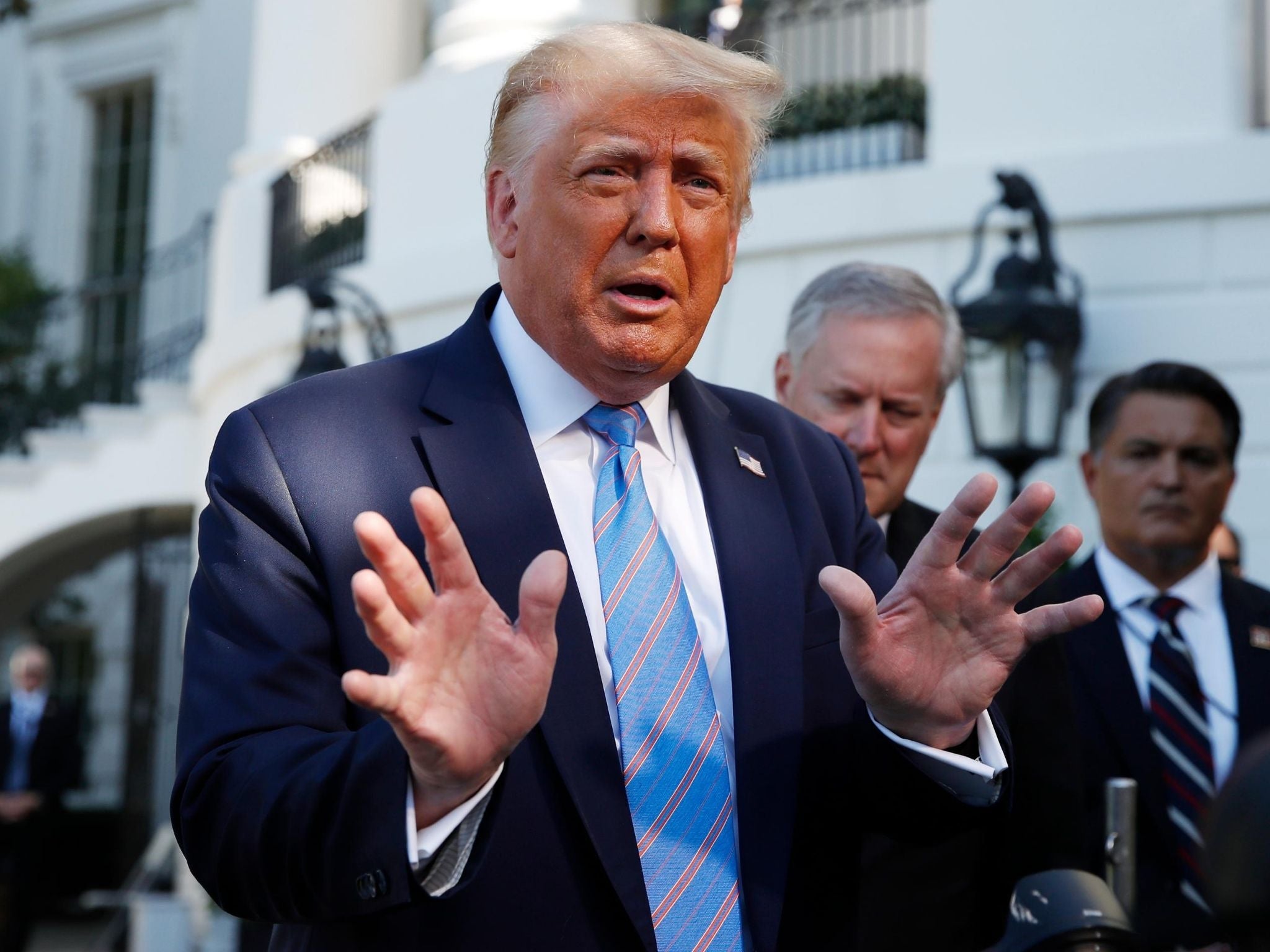Why political junkies should expect the unexpected in October
With the election less than 100 days away, our New York and Washington DC bureaux consider what Trump’s ‘October Surprise’ is likely to be, Phil Thomas writes


With summer upon us, bringing roasting temperatures and tropical levels of humidity to New York and Washington DC, it’s easy to forget that November’s election isn’t far away.
Before us lies a packed programme of political marker points, each modified for the coronavirus era, but each providing hints of what the 59th presidential election holds in store (as well as the bitter battles for Senate and House).
Along with the conventions and televised debates, however, political junkies are avidly awaiting an event that could change absolutely everything. It has no set date, it appears on no calendar and it may actually never happen at all: the October Surprise.
Like the regulation twist before the climax of a whodunnit, the October Surprise is now a staple of the electoral cycle, albeit unofficial and hard to define. Supposedly coined by Reagan aide William Casey, it refers to a revelation or development deliberately timed to hit the news cycle in the weeks before the election and designed to cause maximum damage to the opposition.
Famous examples include Nixon’s talk of a breakthrough in Vietnam peace talks in 1972, and developments in the Iran hostage crisis in 1980.
Some of the most notorious October Surprises were sprung upon an unsuspecting public four years ago. The Access Hollywood tapes, which revealed Trump boasting about sexually assaulting women during what he thought was a private conversation, hit the headlines on 7 October 2016.
So shocking were they that many Republicans refuted Trump’s candidacy. Apparently in response – and in circumstances that have not yet fully been explained – Wikileaks started releasing embarrassing emails hacked from the Democrats which showed Hillary Clinton in an unflattering light.
And, in a further twist that thriller writers may have thought a little over the top, then-FBI chief James Comey suddenly announced that Clinton’s use of a private email for official business may have to be investigated again, only to change his mind. How much difference any of this made to the final result is still debated.
Two years ago, for the midterms, the October Surprise was Trump’s announcement that a caravan of migrants – many of them supposedly bloodthirsty criminals – was bearing down on the US from Central America. If it was meant to scare people into voting Republican, it didn’t work. A “blue wave” saw the Democrats seize control of the House. The terrifying caravan, which had dominated the news for weeks, mysteriously vanished into thin air.
So how about this year? It’s widely accepted that Trump will do anything to win – after all, two of the events that dominated his first term – the Mueller Report and the impeachment inquiry – both stemmed from his alleged efforts to cheat in elections. Many believe he will have something up his sleeve to try and pull back his failing polling numbers.
There’s plenty of speculation already.
The October Surprise that Trump really wants is a vaccine for the coronavirus. More than anything, his mishandling of the pandemic is behind the slump in his popularity. An ABC News/Ipsos poll this month found that an alarming 67 per cent of Americans disapprove of his handling of the crisis (33 per cent approve). Announcing believable progress on a viable vaccine is one of the few things that could help him on that front.
Could it happen? Well, Pfizer and its partner BioNTech are carrying out an advanced trial (one of several across the world) and say they hope for a regulatory review as soon as… October. If it’s then approved for emergency use by the FDA, Pfizer says it could have 100 million doses available by the end of the year. Trump would be unable to resist taking credit for such a breakthrough.
Some speculation seems far-fetched (if anything can be these days). The Globalist’s Stephen D Wrage argues that the October Surprise will be Trump stepping down before polling day and handing over to Mike Pence. The reasoning? Trump is not just emotionally frail, but is a conman who knows when the game is up. Rather than risk the humiliation of defeat, he will load up on pardons and indemnities (courtesy of William Barr), start his own right-wing TV station and spin an intoxicating narrative of betrayal to the Maga diehards. It’s an intriguing theory.
The Washington Times’ Guy Taylor suggests North Korea’s promised but undelivered “Christmas gift” from last year may finally arrive 10 months late as an October Surprise.
Also looking abroad, New York Magazine’s Jonah Shepp mulls the possibility of a war with Iran.
John T Bennett, Washington bureau chief of The Independent, has a few more down-to-earth ideas which he calls “possibilities, not expectations” – though he adds that “something is likely”.
Among them is a development in John Durham’s Department of Justice probe into the Russia investigation – essentially, Trump’s revenge for the Mueller inquiry which will feed into his claims that he is the innocent victim of corrupt Obama-era officials determined to take him down unfairly.
Others worth considering, says Bennett, include Dr Anthony Fauci being fired; Trump trying to delay the election; a government shutdown; or – one that has been discussed by senators – a sudden vacancy on the Supreme Court.
A move on mail-in voting – which Trump regularly denounces and seems to fear – is not impossible.
So for now the tantalising mystery persists and the guessing games continue. Perhaps the real surprise will come from the Democrats. Perhaps there won’t be one at all. In the meantime, we’ll continue to expect the unexpected and enjoy the sunshine while we can.
Yours,
Phil Thomas
US assistant editor
Join our commenting forum
Join thought-provoking conversations, follow other Independent readers and see their replies
Comments